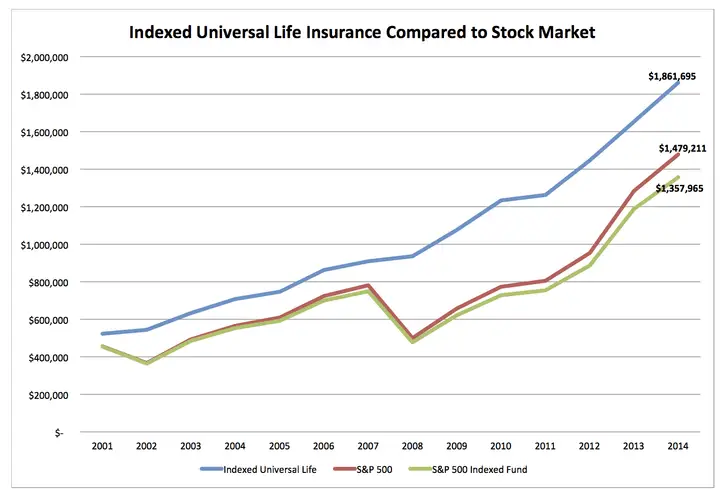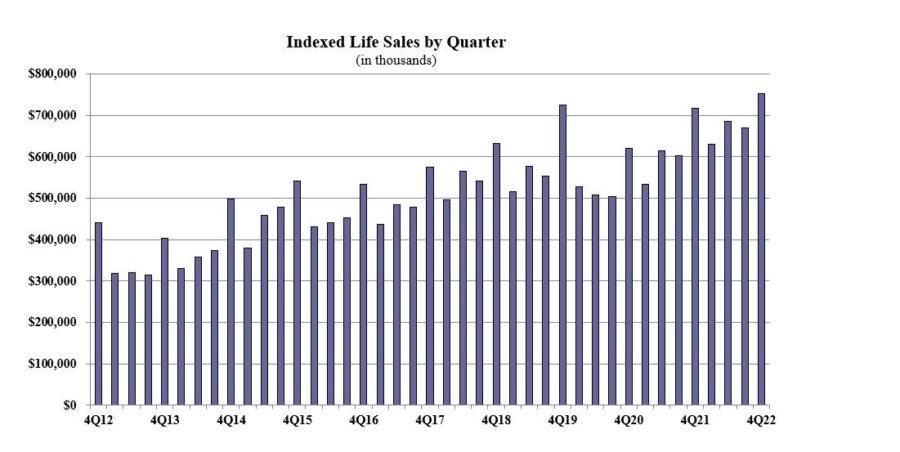All Categories
Featured
Table of Contents
1), commonly in an attempt to defeat their category averages. This is a straw guy disagreement, and one IUL folks like to make. Do they contrast the IUL to something like the Lead Overall Stock Exchange Fund Admiral Show no load, a cost proportion (ER) of 5 basis points, a turn over ratio of 4.3%, and a remarkable tax-efficient document of circulations? No, they contrast it to some dreadful proactively taken care of fund with an 8% lots, a 2% ER, an 80% turnover ratio, and a terrible record of temporary capital gain circulations.
Common funds usually make annual taxable distributions to fund proprietors, even when the value of their fund has gone down in worth. Common funds not just need income reporting (and the resulting annual tax) when the mutual fund is going up in value, but can also impose revenue tax obligations in a year when the fund has actually gone down in value.
You can tax-manage the fund, harvesting losses and gains in order to minimize taxed circulations to the financiers, yet that isn't somehow going to transform the reported return of the fund. The ownership of common funds might need the shared fund proprietor to pay approximated taxes (index life insurance companies).

IULs are simple to place so that, at the owner's fatality, the beneficiary is not subject to either earnings or inheritance tax. The same tax reduction techniques do not work virtually too with common funds. There are many, commonly costly, tax obligation catches related to the moment trading of mutual fund shares, traps that do not put on indexed life insurance policy.
Chances aren't really high that you're going to be subject to the AMT due to your shared fund distributions if you aren't without them. The remainder of this one is half-truths at ideal. While it is true that there is no revenue tax due to your heirs when they acquire the earnings of your IUL plan, it is also true that there is no income tax obligation due to your successors when they inherit a mutual fund in a taxed account from you.
Best Indexed Universal Life Companies
There are far better means to prevent estate tax concerns than purchasing investments with reduced returns. Common funds might create revenue taxation of Social Security benefits.

The development within the IUL is tax-deferred and might be taken as tax free income by means of loans. The policy owner (vs. the shared fund supervisor) is in control of his or her reportable income, therefore enabling them to decrease or also get rid of the taxes of their Social Safety and security benefits. This one is excellent.
Right here's another minimal concern. It holds true if you acquire a mutual fund for claim $10 per share simply before the circulation date, and it disperses a $0.50 circulation, you are then mosting likely to owe taxes (most likely 7-10 cents per share) despite the fact that you haven't yet had any type of gains.
In the end, it's truly regarding the after-tax return, not just how much you pay in tax obligations. You're likewise most likely going to have more money after paying those tax obligations. The record-keeping requirements for having mutual funds are significantly much more complicated.
With an IUL, one's records are kept by the insurer, copies of yearly declarations are sent by mail to the owner, and distributions (if any kind of) are completed and reported at year end. This is additionally type of silly. Of training course you ought to maintain your tax records in situation of an audit.
What Is Better Term Or Universal Life Insurance
Barely a factor to buy life insurance coverage. Shared funds are frequently component of a decedent's probated estate.
Additionally, they are subject to the hold-ups and expenditures of probate. The profits of the IUL plan, on the other hand, is always a non-probate distribution that passes beyond probate directly to one's named recipients, and is therefore exempt to one's posthumous creditors, undesirable public disclosure, or comparable delays and prices.
We covered this one under # 7, however simply to recap, if you have a taxed common fund account, you must put it in a revocable count on (or perhaps less complicated, use the Transfer on Death classification) in order to prevent probate. Medicaid disqualification and lifetime earnings. An IUL can offer their proprietors with a stream of income for their entire life time, despite how much time they live.

This is useful when organizing one's affairs, and converting possessions to revenue prior to a nursing home confinement. Shared funds can not be transformed in a comparable fashion, and are usually taken into consideration countable Medicaid possessions. This is one more foolish one advocating that bad people (you understand, the ones who require Medicaid, a federal government program for the bad, to pay for their assisted living home) should utilize IUL instead of mutual funds.
Adjustable Premium Life Insurance
And life insurance policy looks terrible when compared rather versus a pension. Second, individuals who have cash to buy IUL over and past their pension are mosting likely to have to be dreadful at managing cash in order to ever before receive Medicaid to spend for their nursing home expenses.
Chronic and terminal health problem cyclist. All plans will permit an owner's easy accessibility to money from their plan, typically waiving any surrender fines when such people endure a severe illness, require at-home treatment, or end up being confined to a nursing home. Common funds do not give a similar waiver when contingent deferred sales costs still put on a shared fund account whose proprietor requires to offer some shares to fund the costs of such a keep.
Guaranteed Universal Life Quotes
You obtain to pay more for that advantage (biker) with an insurance coverage policy. What an excellent bargain! Indexed global life insurance policy supplies fatality benefits to the recipients of the IUL proprietors, and neither the proprietor nor the recipient can ever shed cash because of a down market. Common funds supply no such guarantees or fatality benefits of any kind of kind.
I definitely do not require one after I get to monetary independence. Do I want one? On average, a buyer of life insurance policy pays for the real expense of the life insurance benefit, plus the costs of the policy, plus the earnings of the insurance coverage company.
Insurance Company Index
I'm not completely sure why Mr. Morais threw in the entire "you can't shed cash" once again right here as it was covered fairly well in # 1. He just intended to duplicate the most effective marketing point for these things I expect. Once again, you do not lose small bucks, however you can lose real dollars, in addition to face significant opportunity expense as a result of reduced returns.

An indexed global life insurance coverage policy owner may exchange their plan for a completely different policy without setting off revenue taxes. A shared fund proprietor can stagnate funds from one mutual fund firm to an additional without offering his shares at the former (therefore triggering a taxable occasion), and redeeming new shares at the last, frequently subject to sales charges at both.
While it holds true that you can trade one insurance plan for one more, the factor that individuals do this is that the initial one is such a terrible plan that even after acquiring a brand-new one and going with the early, unfavorable return years, you'll still come out in advance. If they were offered the ideal plan the very first time, they shouldn't have any need to ever before trade it and experience the early, negative return years once more.
Latest Posts
Universal Life Insurance Company Ratings
Side Fund Life Insurance
Instant Universal Life Insurance Quote